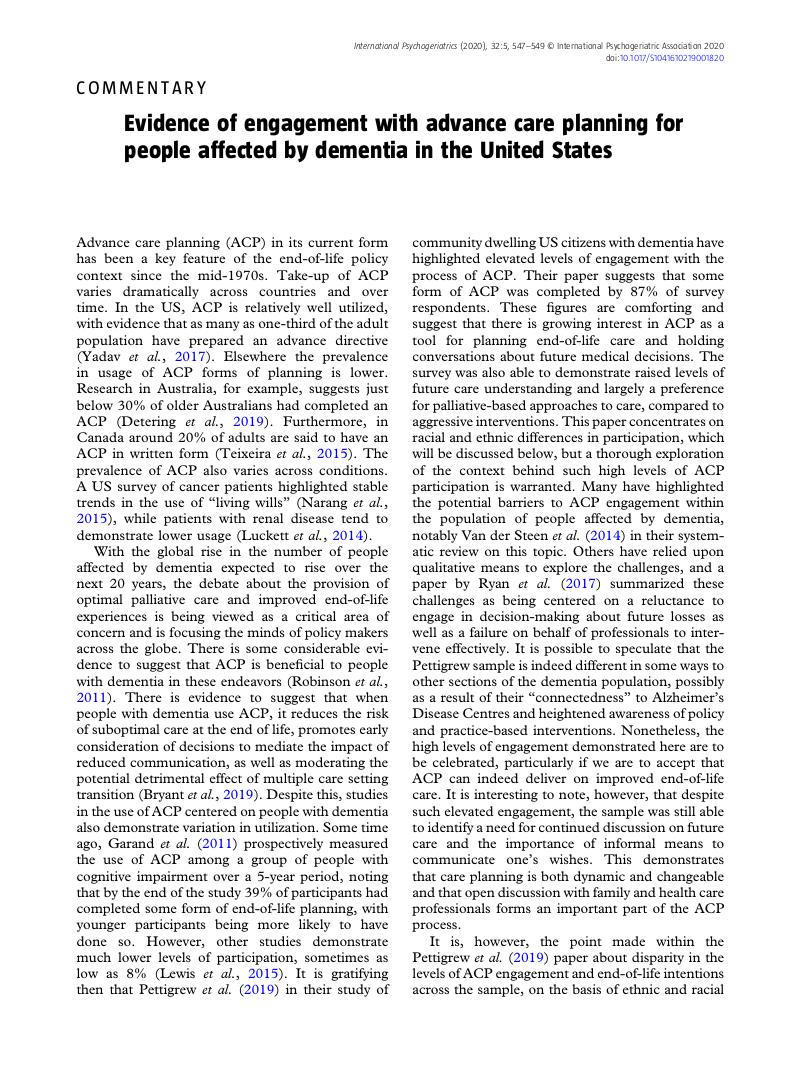Crossref Citations
This article has been cited by the following publications. This list is generated based on data provided by Crossref.
Huang, Hsiu-Li
Lu, Wei-Ru
Huang, Huei-Ling
Liu, Chien-Liang
and
Abdullah, Khatijah Lim
2022.
The effect of a family-centered advance care planning intervention for persons with cognitive impairment and their family caregivers on end-of-life care discussions and decisions.
PLOS ONE,
Vol. 17,
Issue. 9,
p.
e0274096.
Huang, Hsiu-Li
Shyu, Yea-Ing Lotus
Weng, Li-Chueh
Huang, Huei-Ling
Lu, Wei-Ru
and
Liu, Chien-Liang
2023.
Factors associated with the intention to engage in care planning among persons with mild cognitive impairment and dementia.
Geriatric Nursing,
Vol. 50,
Issue. ,
p.
143.



